In a world where societal expectations often dictate the behavior and roles of individuals, certain gender norms have perpetuated a concept known as fragile masculinity. But what is fragile masculinity exactly, fragile masculinity examples, signs of fragile masculinity and why is it important to discuss?
Today, we will delve into the depths of this phenomenon, exploring its signs and providing relatable examples to shed light on its impact. By unraveling the layers of fragile masculinity, we aim to foster a more inclusive and compassionate society for all.
What is Fragile Masculinity?
At its core, fragile masculinity refers to a set of behaviors and attitudes exhibited by men who feel threatened or insecure about their own masculinity.
So what is fragile masculinity? It arises from the belief that any deviation from traditional masculine norms is a sign of weakness or inferiority.
Rather than embracing diversity and promoting healthy expressions of masculinity, those who adhere to fragile masculinity often resort to defensive or aggressive behaviors to protect their sense of self-worth.
Related: The Masculinity Myth: Why Men Need To Accept Their Femininity
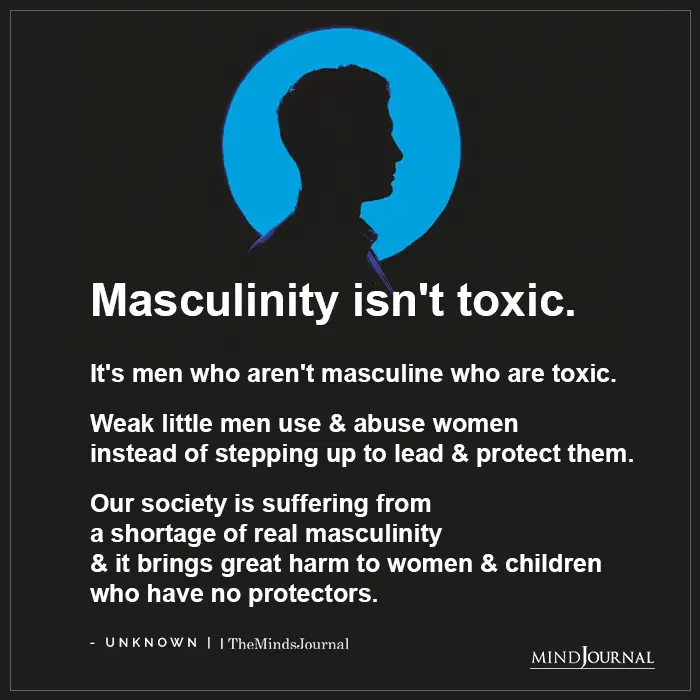
Fragile Masculinity Examples
Fragile masculinity can often go unnoticed as it may often be exhibited casually in our day to day life. For instance, John always dismisses cooking as “women’s work.” However, in reality he is afraid that cooking might threaten his masculinity. Such reluctance to engage in tasks perceived as feminine highlights insecurity within traditional gender norms.
Let us consider a few more fragile masculinity examples to understand the concept better –
1. Body Image and Muscularity
Fragile masculinity often manifests in an obsession with achieving a hypermasculine physique.
Men who adhere to this mindset may engage in excessive workouts, use performance-enhancing substances, or develop body dysmorphia due to the pressure of conforming to societal expectations.
2. Toxic Competition
Fragile masculinity can also be observed in toxic competition among men. This can manifest in various arenas, such as sports, career advancement, or even interpersonal relationships.
The need to constantly assert dominance and prove one’s worth can lead to strained relationships and a lack of genuine connections.
3. Male Entitlement
In some cases, fragile masculinity gives rise to a sense of entitlement, where men believe they deserve certain privileges or preferential treatment simply based on their gender.
This entitlement can manifest in workplace dynamics, relationship dynamics, and societal structures, perpetuating gender inequality.
4. Emotional Repression
Men adhering to fragile masculinity often face challenges in expressing their emotions openly. This emotional repression can lead to mental health issues, strained relationships, and an overall lack of emotional well-being.
5. Fear of Intimacy
Fragile masculinity can hinder the development of deep and meaningful connections. Men who fear intimacy may struggle with vulnerability and emotional closeness, ultimately impacting their ability to cultivate healthy and fulfilling relationships.
Now that we have gained a better understanding what is fragile masculinity through the above fragile masculinity examples, let us explore some of the most common signs that can help us identify this vulnerability.
Related: 10 Rules For Modern Masculinity
Signs of Fragile Masculinity
Do you or someone you know have fragile masculinity? Here are the tell-tale signs of fragile masculinity that can help you identify the truth about yourself –
1. Hypersensitivity to Criticism
One of the prominent signs of fragile masculinity is an extreme sensitivity to criticism, particularly when it pertains to one’s masculinity.
Men who display this behavior may become defensive, reacting with anger or aggression, in an attempt to preserve their perceived masculine image.
2. Fear of Emotion
Fragile masculinity also manifests in a fear of expressing emotions, especially those that are considered vulnerable or traditionally associated with femininity.
Men who adhere to this mindset may suppress their feelings, leading to emotional detachment and an inability to develop meaningful connections with others.
3. Homophobia and Transphobia
Homophobic and transphobic attitudes often stem from fragile masculinity, as individuals may perceive homosexuality or gender nonconformity as a threat to their own masculinity.
Such individuals may engage in derogatory language, discrimination, or even violence towards those who challenge traditional gender norms.
4. Dominance and Aggression
The need to assert dominance and display aggression is another characteristic of fragile masculinity.
In an attempt to validate their masculinity, individuals may resort to controlling or dominating others. They may use physical or verbal aggression to establish a sense of power and superiority.
5. Avoidance of “Feminine” Interests
Understanding what is fragile masculinity, helps you realize that men with poor self-esteem are often afraid of exhibiting “feminine” traits or interests.
Men adhering to fragile masculinity may avoid activities or interests that are traditionally associated with femininity. They fear that engaging in such pursuits will undermine their masculinity.
This avoidance perpetuates gender stereotypes and limits the potential for personal growth and self-expression.
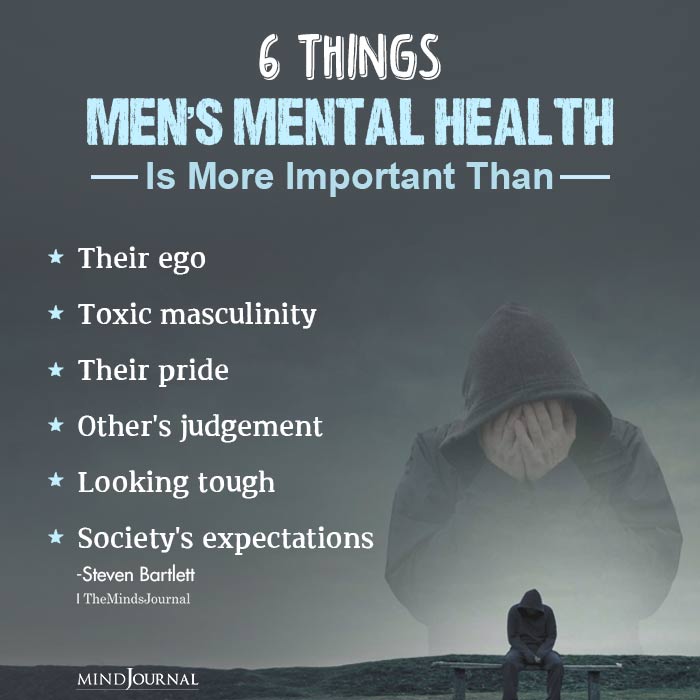
6. Defensiveness about Hobbies and Interests
Men who adhere to fragile masculinity may become defensive or dismissive when their hobbies or interests are questioned or challenged.
They may feel the need to constantly prove their masculinity through their chosen activities, and any criticism or alternative viewpoints can be perceived as a threat to their self-image.
Related: Navigating Forced Masculinity: The Plight Of Highly Sensitive Men
7. Reliance on Stereotypical Gender Roles
Individuals influenced by fragile masculinity often adhere rigidly to traditional gender roles and expectations. They may believe that men should be the primary breadwinners, assertive leaders, and emotionally stoic, while women should be nurturing caregivers and submissive.
This rigid adherence to gender roles limits personal growth and can lead to strained relationships. This is perhaps one of the most common signs of fragile masculinity.
8. Objectification of Women
Fragile masculinity can contribute to the objectification of women, reducing them to mere objects of desire and reinforcing harmful stereotypes.
Men who exhibit this behavior may view women primarily through a sexual lens, valuing their appearance over their intellect or personality. This objectification perpetuates a culture of sexism and inequality.
9. Dismissal of Femininity
Men influenced by fragile masculinity may dismiss or devalue anything associated with femininity. They may view traditionally feminine traits, such as empathy, compassion, or sensitivity, as weaknesses and strive to distance themselves from these qualities.
This dismissal not only harms men by limiting their emotional range but also perpetuates gender inequality and undermines the contributions of women.
10. Avoidance of Seeking Help
Due to the pressure to appear self-reliant and independent, men influenced by fragile masculinity may avoid seeking help or support when facing challenges or emotional distress.
They may view seeking assistance as a sign of weakness or vulnerability, fearing that it will undermine their masculinity. This reluctance to seek help can exacerbate mental health issues and hinder personal growth.
11. Policing of Other Men’s Masculinity
Men influenced by fragile masculinity may act as gatekeepers, policing and criticizing other men who deviate from traditional masculine norms. They may mock or belittle men who express emotions, engage in non-stereotypical hobbies, or challenge gender norms.
This behavior perpetuates a toxic cycle of judgment and reinforces the pressures of fragile masculinity on all men.
By understanding these signs of fragile masculinity, we can understand what is fragile masculinity and collectively work towards dismantling harmful beliefs and promoting a more inclusive and accepting society that celebrates the diversity of masculinity.
It is crucial to encourage open dialogue, challenge societal expectations, and support individuals in embracing their authentic selves.
Related: What Is Positive Masculinity? 5 Ways It Can Empower Men And Society
How to Deal with Individuals with Fragile Masculinity
Dealing with individuals who exhibit signs of fragile masculinity can be challenging, but it’s important to approach the situation with empathy, understanding, and a desire for positive change. Here are some strategies to consider:
1. Foster Open Dialogue
Engage in open and respectful conversations to create a safe space for discussion. Encourage individuals to express their thoughts and feelings, and actively listen to their perspectives.
By promoting dialogue, you can help challenge preconceived notions and misconceptions about masculinity.
2. Educate and Raise Awareness
Share information and resources that address toxic masculinity and its impact. Help individuals understand what is fragile masculinity and that embracing a range of emotions, hobbies, and interests does not diminish their masculinity, but rather promotes healthier and more fulfilling lives.
Encourage them to question societal expectations and explore alternative perspectives.
3. Lead by Example
Challenge traditional gender roles and stereotypes by modeling healthy masculinity. Embrace your own authentic self, express emotions openly, and engage in a diverse range of activities and interests.
By demonstrating that strength lies in vulnerability and self-expression, you can inspire others to do the same.
4. Encourage Self-Reflection
Encourage individuals to reflect on the origins of their beliefs and attitudes about masculinity. Help them understand how societal pressures have shaped their perspectives and how these beliefs may be limiting their growth and relationships.
Encourage self-reflection and introspection to facilitate personal growth and a willingness to change.
5. Promote Emotional Intelligence
Emphasize the importance of emotional intelligence and self-awareness. Encourage individuals to explore and understand their own emotions, as well as develop empathy for others.
Help them recognize that emotional strength is not about suppressing emotions but rather understanding and expressing them in healthy ways.
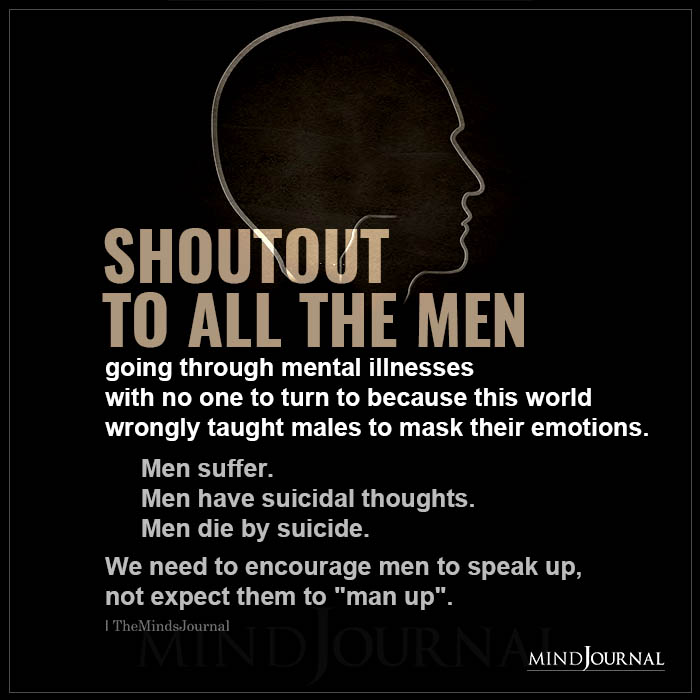
6. Highlight Positive Masculine Role Models
Introduce individuals to positive masculine role models who challenge traditional stereotypes and embody healthy expressions of masculinity. Share stories of men who are compassionate, nurturing, and successful in various areas of life.
By providing alternative examples, you can broaden their understanding of what it means to be a man.
7. Set Boundaries and Call Out Harmful Behavior
It’s crucial to establish boundaries and not tolerate behavior that perpetuates toxic masculinity, such as sexism, homophobia, or aggression. Call out harmful remarks or actions respectfully but firmly.
By understanding what is fragile masculinity and challenging such behavior, you can create a safer environment for everyone involved.
8. Offer Support
Recognize that individuals who exhibit fragile masculinity may be struggling with their own insecurities and societal pressures.
Offer support and resources, such as counseling, therapy, or support groups, to help them navigate their journey toward healthier expressions of masculinity.
Related: Who Is A Good Man? 25 Signs You Embody Ideal Man Characteristics
Takeaway
So what is fragile masculinity? Fragile masculinity, a construct rooted in societal norms and expectations, adversely affects individuals and perpetuates harmful gender stereotypes.
By recognizing the signs and strategies to deal with fragile masculinity, we can begin to challenge and dismantle these harmful beliefs. It is essential to foster an environment that embraces diverse expressions of masculinity, encourages emotional intelligence, and promotes empathy and understanding.
Remember, change takes time, and not everyone will be receptive to challenging their beliefs. Focus on fostering understanding, empathy, and promoting healthy expressions of masculinity.
By doing so, you can contribute to creating a more inclusive and compassionate society for all individuals, where individuals are free to express their authentic selves, regardless of their gender or societal expectations.
Frequently Asked Questions (FAQs):
What is the meaning of toxic masculinity?
Toxic masculinity refers to harmful cultural norms that prescribe rigid, aggressive, and emotionally repressive behavior as ideal for men, fostering harmful social dynamics.
What are the 4 types of masculinity?
Traditional, modern, alternative, and post-modern masculinities represent diverse expressions of gender identity, influenced by culture, society, and individual experiences.
How do you break toxic masculinity?
Breaking toxic masculinity involves challenging stereotypes, promoting emotional expression, fostering equality, and embracing diverse expressions of masculinity for healthier gender norms.
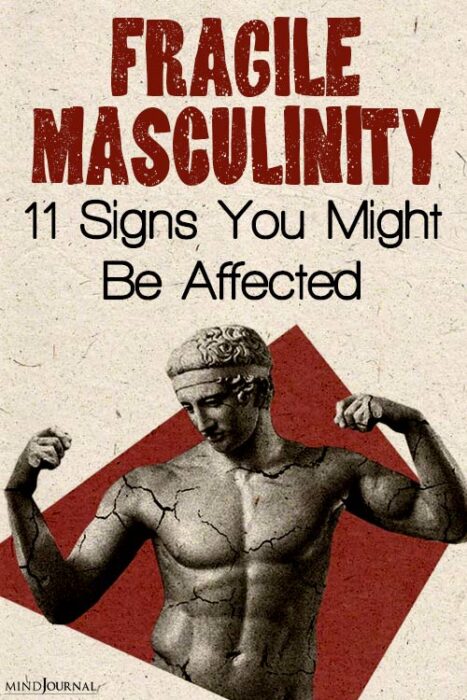
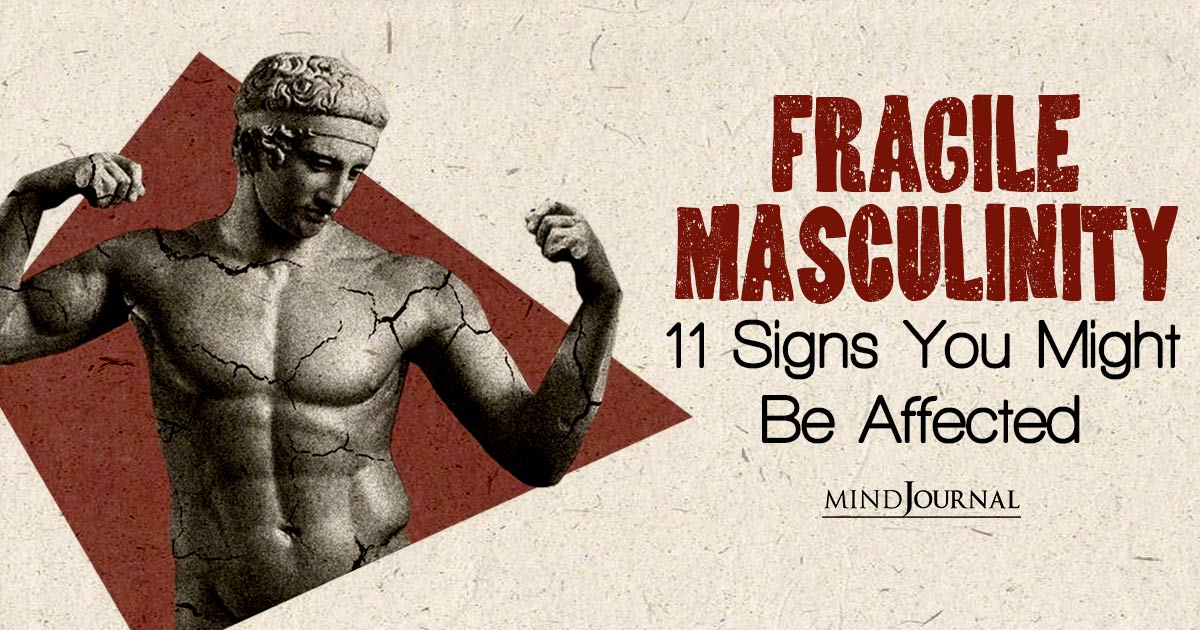






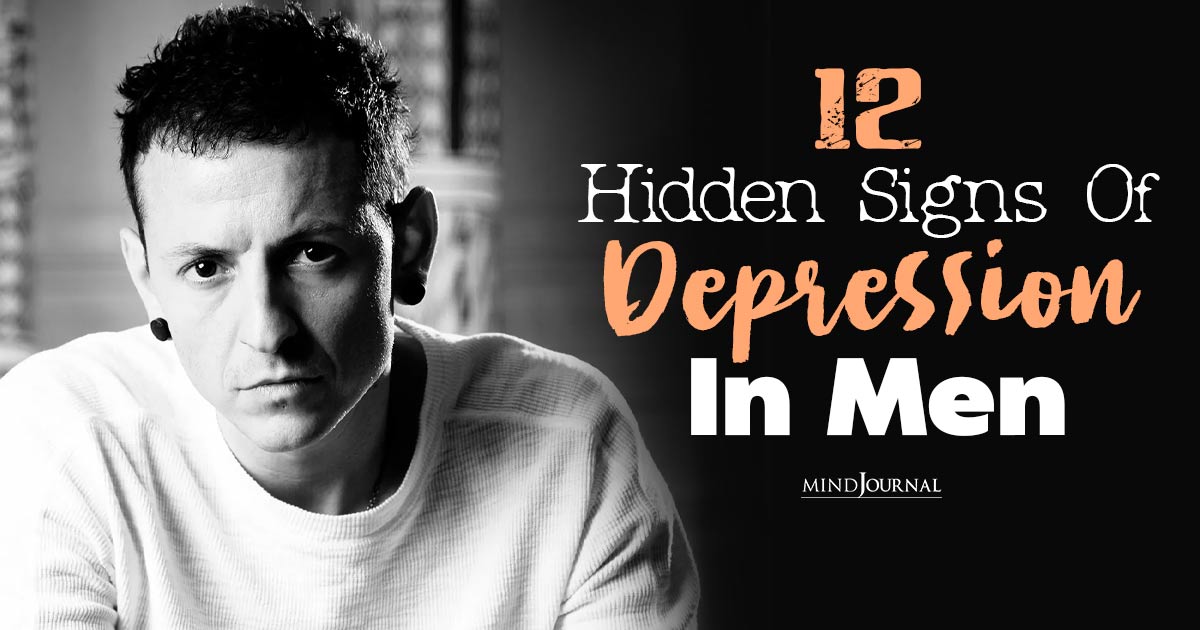
Leave a Reply
You must be logged in to post a comment.